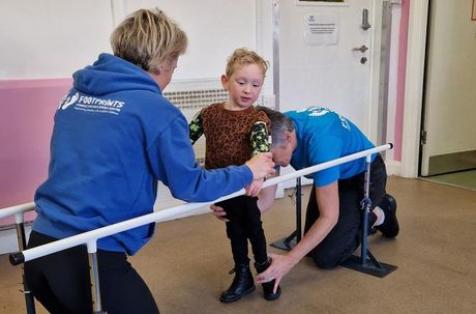Beth's Blog - Conductive Education Awareness Week
22.3.23
"I started taking Jesse to Footprints before he was one. This was at a time when a number of people had written Jesse off, and we weren’t getting much professional support. I didn’t really know anyone else with a child with a disability and I didn’t know where to turn to get help. I felt desperate to assist Jesse to get as much positive intervention, assistance and input as early as possible to help him achieve his potential.
Jesse has been attending Footprints for four years now and has made noticeable progress physically, cognitively, socially and with communication.

Conductive education is a method of learning which supports children with a variety of disabilities and conditions. It is based on the concept of the potential of the individual and that every child has the capacity to learn and develop, if they are given the right assistance.
Conductive education is an active and all-encompassing way for children to play, learn and develop skills. Sessions teach children about their bodies – how they work and move and help children and their parents and carers to find new or different ways to undertake daily activities, or to learn, through repetition.
Sessions help children physically, practically, socially and cognitively to develop. Sessions include physiotherapy, physical activity and movement, communication, social interaction, play, using senses to discover the world, craft activities, songs, stories, specialist equipment and familiar objects to reinforce repeated activities.
The Footprints staff have been so practically supportive. They really care about the children they work with and aim to differentiate and adapt tasks for individual children and their needs and abilities. Sessions are small so that this can be achieved, and the environment kept calm.
Footprints is a very friendly community, where parents and carers can meet others who understand the challenges that can arise when a child has a disability or a condition and the team and other parents and carers are always there to listen, offer advice and provide information and assistance from their own experience."
Beth x





